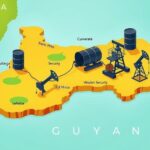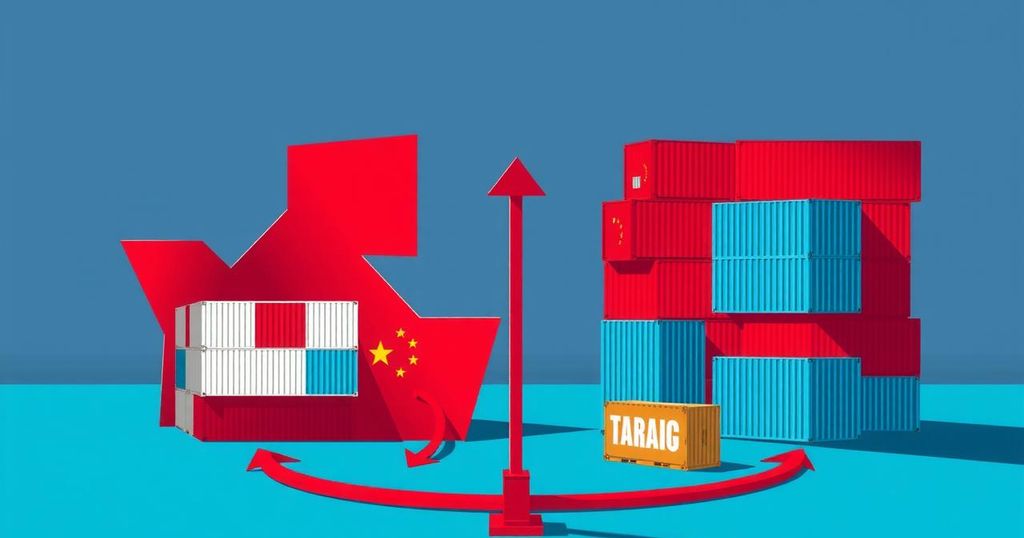Politics
AF, ASIA, BIDEN ADMINISTRATION, CUBA, DENMARK, DIPLOMACY, ESSEQUIBO, EUROPE, FOREIGN POLICY, GREENLAND, GULF, GULF ARAB NATIONS, GULF STATES, GUY, GUYANA, INTERNATIONAL RELATIONS, IRAN, JAMAICA, JD VANCE, KINGSTON, KUWAIT, LATIN AMERICA, MARCO RUBIO, NATO, NORTH AMERICA, PANAMA CANAL, QATAR, RUB, RUBIO, SOUTH AMERICA, STATE DEPARTMENT, SURINAME, UNITED STATES, US, VENEZUELA
Omar El-Sharif
Marco Rubio’s Visit to Guyana: Strengthening Security Amid Venezuelan Threats
Secretary of State Marco Rubio will travel to Guyana to offer U.S. security assurances as tensions rise with Venezuela. The visit includes signing a memorandum of understanding on security cooperation, reflecting U.S. interest in Guyana’s significant oil wealth. Concurrently, rising geopolitical tensions with Venezuela are underscored by both countries’ historical territorial disputes over the Essequibo region, essential to Guyana’s oil production. The Trump administration continues to favor oil expansion as economic and security priorities while diminishing engagement with Venezuela.
Secretary of State Marco Rubio is scheduled to visit Guyana, aiming to extend U.S. security assurances to the nation amidst rising tensions from Venezuela. Guyana, now rich in oil due to recent discoveries, is expected to become the world’s largest oil producer per capita, surpassing Qatar and Kuwait. During this trip, Rubio will sign a memorandum of understanding for enhanced security cooperation, highlighting the U.S. commitment to counter regional threats, particularly from Venezuela.
In previous discussions with Caribbean nations in Jamaica, Rubio has reiterated that the security of Guyana is of paramount importance. Mauricio Claver-Carone, the U.S. special envoy on Latin America, emphasized that cooperation with Guyana mirrors the existing U.S. relationships established with oil-rich Middle Eastern countries, designed to protect against larger neighbors. Claver-Carone pointed out that the threats from Venezuela have necessitated a collaborative security effort.
Guyana, a former British and Dutch colony, continues to grapple with poverty despite its newfound oil wealth. Although there have been movements within Guyana advocating for closer ties with the U.S., discussions about formal accession are not anticipated. The Trump administration has expressed a desire to expand U.S. influence in the region, which corresponds with its aggressive foreign policy inclinations, including its interest in regions like Greenland and the Panama Canal.
President Irfaan Ali of Guyana, who is up for reelection this year, has shown support for closer defense ties with the United States, including potential joint maritime operations. Venezuela has claimed portions of Guyana, specifically the Essequibo region, intensifying the geopolitical tension. Recently, Guyana condemned Venezuelan military incursions into its waters, which Venezuela disputed, further escalating the diplomatic strain.
The Trump administration has prioritized boosting oil production in Guyana, seeing strong economic and security benefits. ExxonMobil leads oil operations in Guyana, forecasting significant production increases, set to produce 1.3 million barrels daily by the decade’s end. This output will considerably overshadow the diminished production levels in Venezuela, which have declined due to governmental mismanagement and U.S. sanctions. Furthermore, the Trump administration has revoked exemptions for U.S. oil companies operating in Venezuela as part of its larger strategy against the regime.
In summary, Secretary of State Marco Rubio’s visit to Guyana aims to solidify U.S.-Guyana relations by offering security cooperation in the wake of increasing Venezuelan aggression. The burgeoning oil industry in Guyana presents not only economic opportunities but also geopolitical considerations, as U.S. interests align against a historically adversarial Venezuela. This engagement signifies a broader strategy to enhance American influence and protect regional allies amid fluctuating global oil dynamics.
Original Source: www.france24.com








Post Comment